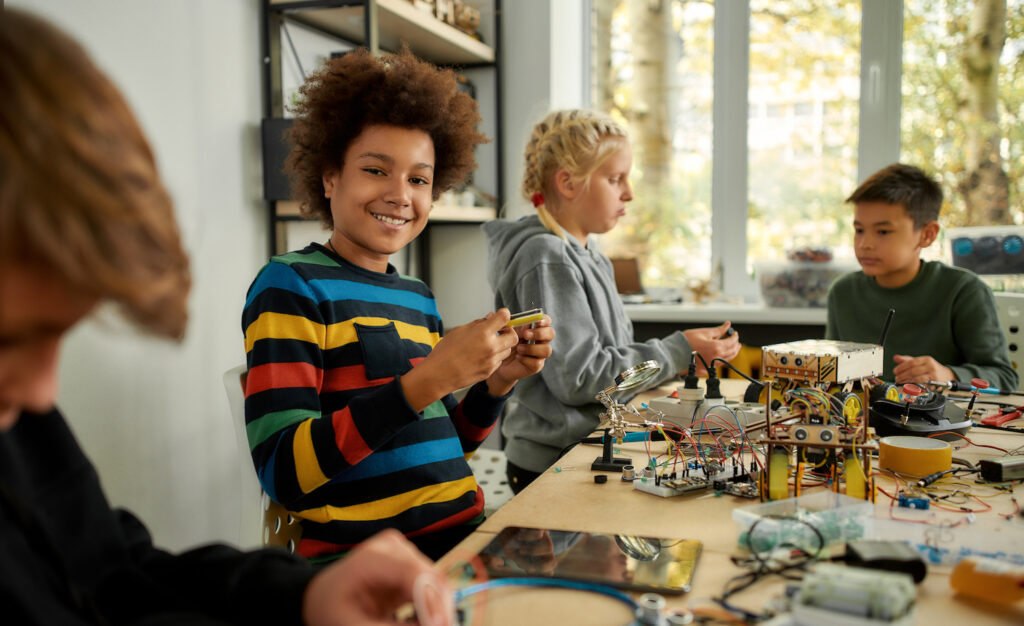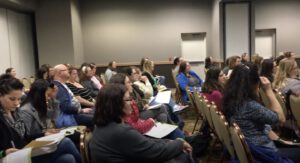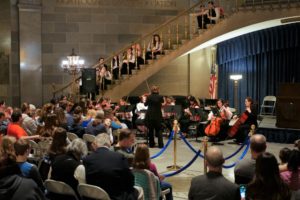Upcoming ‘Heartland Hybrid and Microschools Summit’ in Kansas City set to grow education freedom movement
If education is the final frontier in American freedom, its pioneers and homesteaders are meeting in Kansas City next weekend to map the open prairie and help each other plant a flag in the…

If education is the final frontier in American freedom, its pioneers and homesteaders are meeting in Kansas City next weekend to map the open prairie and help each other plant a flag in the ground.
Free-market think tank Kansas Policy Institute, in conjunction with a “grassroots group of education entrepreneurs,” is hosting the first Heartland Hybrid and Microschools Summit from 9 a.m.- 3 p.m. Saturday, Sept. 23, at the Sheraton Overland Park Hotel at the Convention Center, 6100 College Boulevard.
As explained by breakfast keynote speaker Kerry McDonald, senior education fellow at the Foundation for Economic Education, the summit “is an opportunity for practitioners and policymakers to come together and learn more about today’s exciting educational trends.”
“The Summit is open to anyone who is interested in education policy and innovation,” McDonald writes, “and will include keynote presentations from educational thought leaders as well as panel discussions featuring local and regional education entrepreneurs.”
Admission is just $20. Registration to ensure a spot, available here, ends Thursday morning, though walk-ins will be welcome if space is available. Besides KPI, the summit is sponsored by the VELA Education Fund and the National Hybrid Schools Project at Kennesaw State University.
Those already in the hybrid and micro school space will be able to compare notes and best practices, while those educators and parents curious about the exciting new educational options opening up around them will be able to stick a toe in or fully immerse themselves in the quickly changing landscape of education freedom.
“The education freedom movement is truly American,” McDonald tells The Heartlander. “It is a decentralized, entrepreneur-driven, freedom-focused movement that places individual learners at the center of education and allows parents to direct the upbringing of their children in ways that matter most to them.
“We currently have a compulsory mass schooling system that is one-size-fits-all – that often doesn’t reflect families’ values and preferences, but children are forced to attend an assigned district school without, in many cases, other options.
“So, school choice policies – particularly those that are focused around education savings accounts and tax credit programs and tax credit scholarship programs – enable families to use that education funding and apply that funding toward a learning environment that meets their needs and preferences.”
For KPI, the summit is a way to be a connector, and to become connected, to the many pioneers in the hybrid and micro school frontier.
“This is something that’s relatively new for KPI,” says President James Franko. “So, we’re trying to get to know more of the people who are actually doing the hybrid and micro schooling, and just develop those contacts – figure out what challenges they’re facing. Yes, in Kansas, but then throughout the region. We’re calling it the ‘Heartland Summit,’ not just the ‘Kansas Summit.’”
Mostly, though, the summit will help educators and education entrepreneurs connect, learn and continue to build a community.
“I think our target audience would be people who are already doing it, but either looking to expand or people who are interested in doing it and want to figure out how it’s worked for other educators around the region,” he says.
Franko says he’s eager to hear from McDonald, author of Unschooled: Raising Curious, Well-Educated Children Outside the Conventional Classroom, as well as the Velinda Jonson Family Education Fellow at State Policy Network, an adjunct scholar at the Cato Institute and a regular Forbes contributor.
“Anytime you can get somebody who’s talked about these issues for so long at a national level to come into the Kansas City area is great, and she just brings a wealth of knowledge and expertise,” he says.
Education freedom is a market-based, family-centric approach not just to schooling, but to learning – which McDonald differentiates between. Increasingly, learning is self-directed, which McDonald refers to as being “unschooled.”
“Unschooling is really separating education from schooling in every possible way,” she says. “It sort of recognizes that schooling is one way to be educated, but it’s not the only way. And with unschooling, or what’s more broadly known as self-directed education, young people are in charge of their own learning. There is no adult-imposed curriculum, no sort of coercion around what children will learn and when. It’s all really driven by children’s interests and passions.
“The role of adults is to recognize those interests and passions and help to facilitate that learning, and connect learners with available resources – both digital resources and resources in one’s community.”
Many unschoolers are homeschoolers, McDonald says, but self-directed learning can also occur in hybrid and micro schools, and homeschool resource centers and learning centers.
McDonald says much of her current work involves telling the stories of education entrepreneurs – many of them parents – who are making all this innovation possible. And it all takes place above the current fray in public education, where parents are increasingly being marginalized and relationships between parents and schools are increasingly contentious.
“The one-size-fits-all coercive system of mass schooling is a political institution, right? Public schooling is a political institution,” she says. “It creates conflict between different individuals and different groups of individuals with diverse values and preferences. And it pits these parents against one another.
“So, you’ll have some parents who have a particular curriculum or ideology that they prefer and that they want in the schools, and then you’ll have another group of parents who have a different ideology, who want different curriculum in the schools. And it creates these battles of will.
“And so, what school choice policies do is take the temperature down, and they enable families to stop fighting in public schools and instead choose just the right learning environment for their children that’s aligned with their preferences.
“I think the education freedom movement enables all children the opportunity to find the learning environment that works the best for them, and allows families to be able to choose the learning environment that works best for their children and that’s aligned with their personal values and preferences.”
And although education freedom is a bizarrely divisive topic, McDonald sees it bringing people of different political views together more and more.
“I would say that I am seeing much more bipartisan support for school choice and education freedom,” she says. “Many, for example, of the education entrepreneurs that I interview and spotlight in my work are politically progressive, but are committed to expanding school choice policies and are interested in education funding following families.
“So, I think school choice is increasingly a unifying policy. We may disagree on other policy areas, but when it comes to school choice many parents and practitioners have more in common than not.”
As for bringing people together, Dr. Eric Wearne – an associate professor in the Education Economics Center at Kennesaw State University in Georgia – has been doing just that for the hybrid and micro school community through the National Hybrid Schools Project, which he directs. Wearne will be the summit’s keynote speaker at lunch.
“It’s a lot of fun to partner with somebody like Kennesaw State, who’s been hosting a national hybrid schools conference in Georgia for a couple of years,” Franko says. “And then, the opportunity to do something similar but at a smaller level in a different part of the country just opens up this world to a whole other part of the country.”



